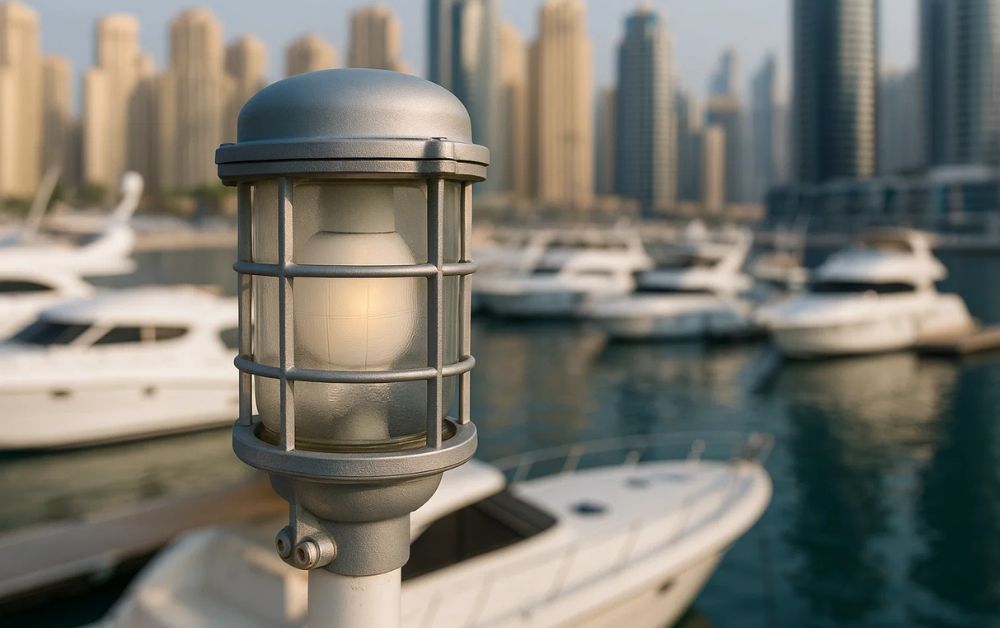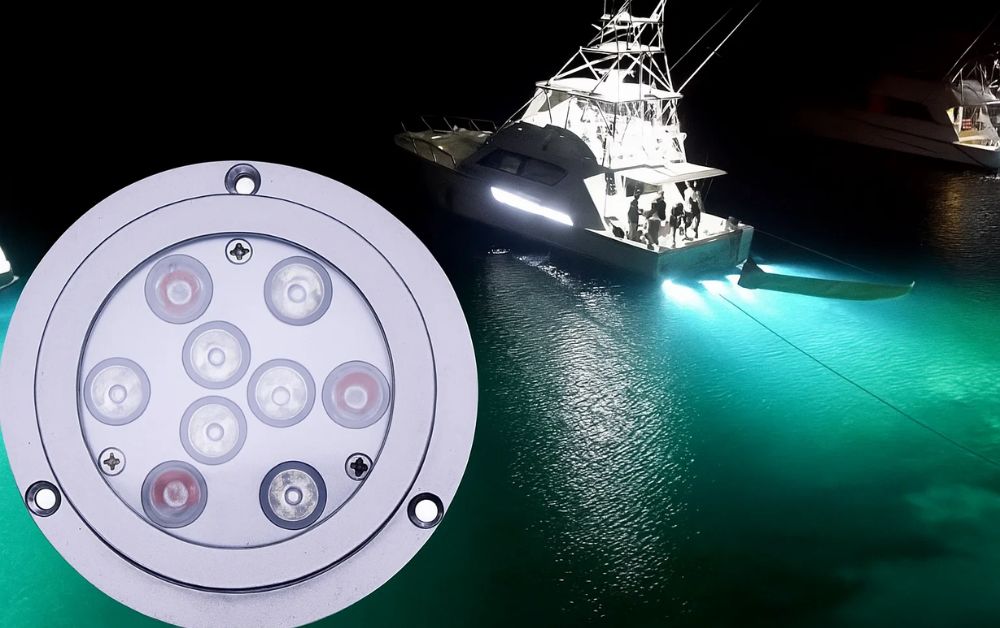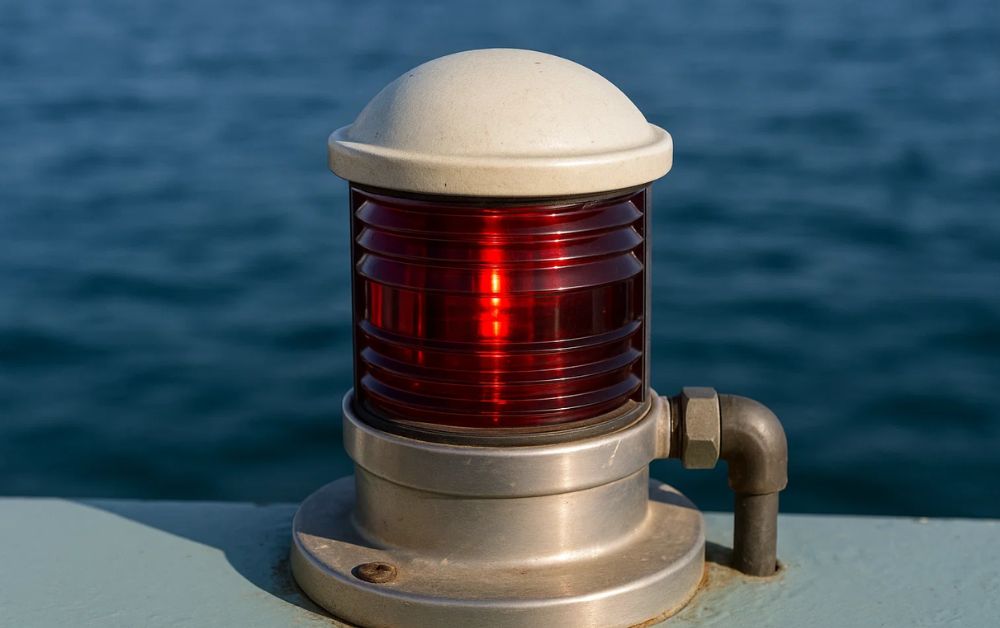
Navigating the open water, whether for leisure, fishing, or commercial purposes, requires the highest level of safety. Unlike roads, waterways do not have fixed lanes, streetlights, or clear boundaries. This is where marine lights play a crucial role. They are not just accessories but essential safety tools that guide vessels, prevent collisions, and ensure visibility in challenging conditions. For boat owners, operators, and maritime professionals, understanding the importance of marine lights is vital.
In this blog, we’ll explore how marine lights enhance safety, the different types used, and why choosing reliable marine light suppliers in UAE can make all the difference.

The Importance of Marine Lights in Navigation
Marine environments are unpredictable. Waves, fog, storms, and nightfall can make visibility extremely poor. Unlike driving on land, boats have no headlights to illuminate a “road” ahead. Instead, navigation lights help captains and crew identify the position, direction, and type of vessel in their vicinity.
By following international maritime regulations, these lights indicate whether a vessel is anchored, moving, fishing, or restricted in maneuverability. This significantly reduces the risk of accidents, especially in crowded shipping channels or busy ports.
Without proper lighting, boats can easily collide, grounding incidents can occur, and rescue operations may be delayed. Thus, marine lights are directly tied to the safety of human lives and marine assets.
Key Ways Marine Lights Improve Safety
1. Preventing Collisions at Night
At night, marine lights act as the “eyes” of the vessel. Navigation lights help identify which direction a boat is traveling and its relative size. For instance, red and green side lights show port and starboard sides, while a white stern light marks the rear of the vessel. This system allows operators to quickly assess who has the right of way, avoiding accidents.
2. Ensuring Visibility in Poor Weather
Fog, heavy rain, or stormy seas often reduce visibility to dangerous levels. In such conditions, strong marine floodlights, searchlights, and deck lights become critical. They illuminate the vessel, making it easier for others to detect and navigate safely around.
3. Supporting Emergency Situations
Marine lights are not only for navigation. They also play a major role in emergencies. Strobe lights, distress flares, and high-powered signal lights help rescuers identify boats in trouble. Properly functioning emergency lights can mean the difference between a swift rescue and prolonged danger.
4. Illuminating Work Areas
On fishing boats, cargo ships, and oil rigs, work often continues through the night. Deck lights ensure crew members can perform tasks safely without accidents. Adequate lighting prevents slips, falls, and mishandling of equipment, protecting both workers and valuable cargo.
5. Enhancing Security
Piracy, theft, and unauthorized access remain risks in some waters. Bright floodlights deter such threats by making it difficult for intruders to approach unnoticed. Additionally, good lighting systems help surveillance cameras capture clearer images at night.
Types of Marine Lights and Their Safety Roles
Understanding the different types of marine lights helps vessel owners choose the right setup:
- Navigation Lights: Essential for direction, speed, and vessel type identification.
- Anchor Lights: Positioned at the highest point of a vessel to signal when it is stationary.
- Searchlights: Used to scan waters ahead, crucial for detecting obstacles or approaching docks.
- Deck and Work Lights: Provide illumination for crew activities at night.
- Underwater Lights: Improve underwater visibility, aiding divers and enhancing vessel presence.
- Emergency Strobe Lights: Emit flashing signals to indicate distress or attract attention.
Each of these lights plays a specific role in maintaining safety, and their proper installation and maintenance are non-negotiable.
Why Choosing the Right Suppliers Matters
The performance of marine lights directly impacts safety. Inferior or unreliable lighting can fail at critical times, putting lives and vessels at risk. This is why sourcing from trusted marine light suppliers in UAE is crucial.
High-quality suppliers provide:
- Lights that meet IMO (International Maritime Organization) and COLREGs (Collision Regulations) standards.
- Energy-efficient LED options that reduce fuel consumption.
- Durable products built to withstand corrosion, saltwater, and extreme weather.
- Expert advice on installation and compliance requirements.
The UAE, with its busy ports and thriving maritime sector, has become a hub for reliable suppliers who cater to both commercial and private boating needs.
Maintenance and Best Practices for Marine Lights
Even the best marine lights need regular care to function optimally. Some best practices include:
- Routine Checks: Inspect all lights before departure.
- Clean Lens Covers: Salt and dirt buildup can reduce brightness.
- Check Wiring: Ensure electrical connections are not corroded.
- Replace Damaged Bulbs Immediately: Never sail with faulty lights.
- Upgrade to LEDs: They last longer and are more energy-efficient.
By following these practices, boat owners ensure their lights remain reliable and effective.
Conclusion
Marine lights are much more than simple illumination tools—they are lifelines on the water. From preventing collisions to aiding in rescue operations, they form a crucial part of maritime safety. Whether you own a private yacht, fishing vessel, or commercial ship, investing in the right marine lights is a responsibility that cannot be ignored.
For those seeking trusted marine light suppliers in UAE, one name that truly shines is Al Arz Electrical Ware Trading. With a strong reputation for quality, compliance, and reliability, they provide marine lighting solutions that keep vessels safe and efficient. Choosing a dependable partner like them ensures peace of mind every time you set sail.


